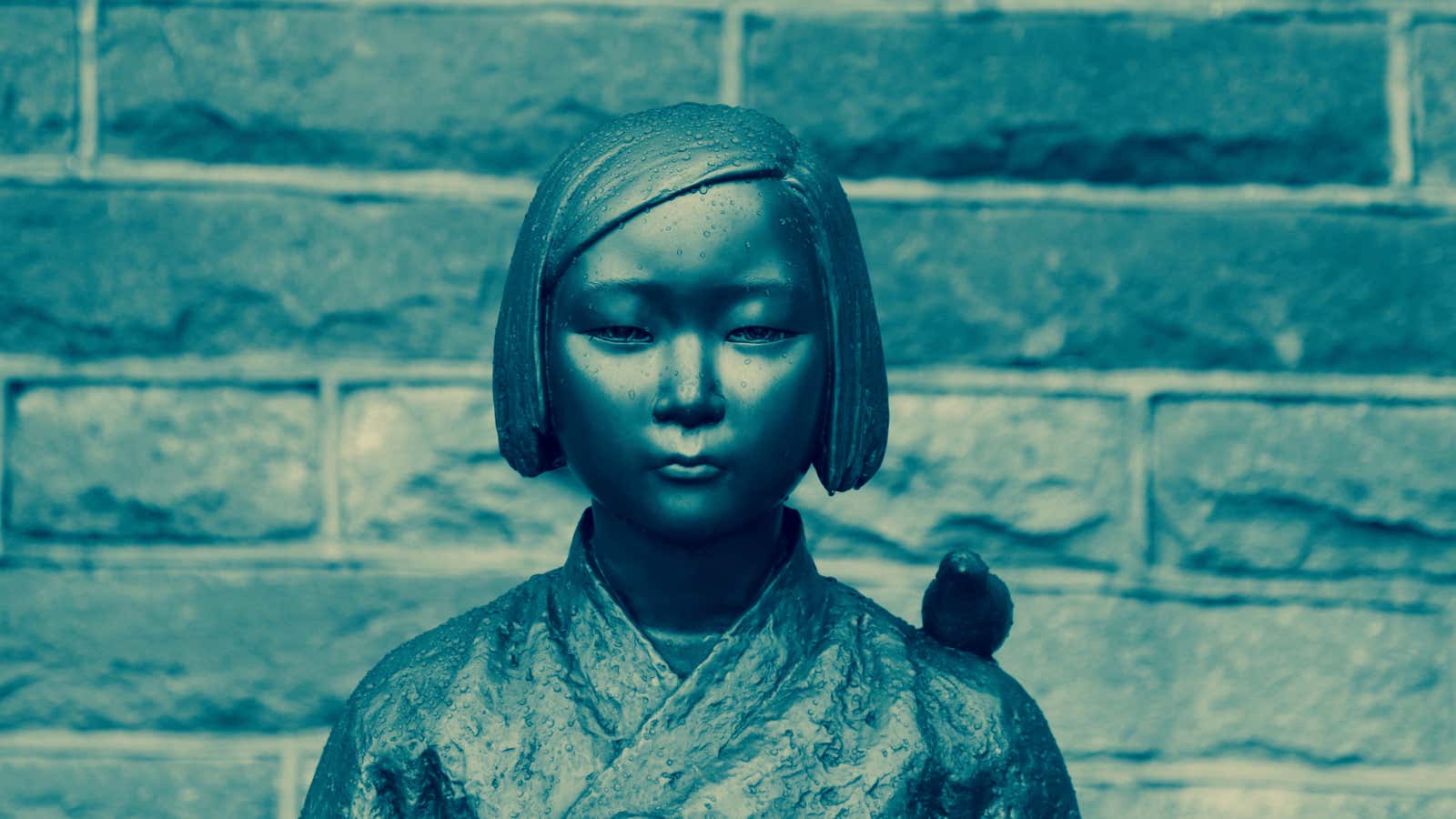International treaties require nations to respect one another’s dignity, and Japan says South Korea isn’t holding up its end of the bargain. The Japanese government this week temporarily withdrew two of its envoys from South Korea after the latter failed to remove a “comfort woman” statue erected by a civic group in Busan.
The five-foot bronze statue depicts a barefoot girl, seated and wearing a traditional dress, staring forward. Erected on Dec. 30 by the Committee of Youth for Erecting a Peace Monument, it is meant to protest a 2015 settlement between Japan and South Korea over the former’s use of “comfort women” during World War II. Members of the committee are guarding the statue, which went up in front of the Japanese consulate. Similar statues have been erected elsewhere, including in front of the Japanese embassy in Seoul earlier this year. That one also still stands.
Calling the situation “extremely regrettable,” Japan’s cabinet secretary, Yoshihide Suga, announced on Jan. 6 that diplomats from Busan would be withdrawn from South Korea. Discussions about the renewal of a cooperative currency-swap deal were also suspended. The conflict could make it difficult for Japan and South Korea to exchange military intelligence on threats from North Korea, reports The Japan Times.
Japan has long struggled with the legacy of comfort women. While exact figures are widely debated, scholars estimate that anywhere from 20,000 to 410,000 women from South Korea and other occupied countries were lured by Japan’s Imperial Army with promises of legitimate work—others were kidnapped outright—and then forced to work as prostitutes for Japanese soldiers. The goal was to prevent local rapes by the occupying force, but history has rightly lambasted the notion of preventing rape by codifying sexual enslavement.
In December 2015, after 70 years of silence, Japan apologized for its comfort women policy, and reached an agreement with South Korea to pay out 1 billion yen (about $8.5 million) to surviving sex slaves. In exchange, South Korea agreed, essentially, to stop talking about it. To date, only 34 of 46 survivors have accepted the settlement, and polls show that many South Koreans opposed it entirely. On Jan. 6, Japan’s Suga lamented that the controversy hadn’t yet been put to bed.
“We want to stress again that despite difficult issues facing us, both governments must strive to develop bilateral relations based on mutual trust,” Cho June-hyuck, spokesman for the Korean Foreign Ministry, told the New York Times. He signaled no plans to remove the statue.
South Korea is contending with its own problems. President Park Geun-hye was impeached on Dec. 9 over allegations that she conspired with a friend to extort $69 million from big businesses in return for political favors. The impeachment is now being reviewed by the Constitutional Court.
